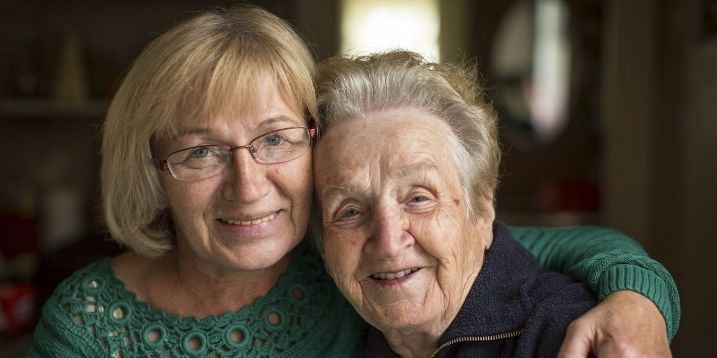
Family discussions are an important starting point for advance care planning. It's very important to talk with your family members, particularly your substitute decision-maker(s), so they really understand what your preferences are if you cannot make your own decisions, and need someone else to do this for you.
Karen Detering is a physician and past Medical Director of Advance Care Planning Australia. She has seen many patients and families work through the advance care planning process. She believes that family discussions about advance care planning are critically important in enabling people to understand each other's perspectives on end-of-life matters.
Karen had known Mariam* for many years. They'd developed a close and trusting patient-doctor relationship, from the time Mariam, then reasonably healthy, was diagnosed with chronic lung disease. Ten years on from her diagnosis, her illness became problematic and she was hospitalised. For the first time, Karen met Mariam's daughter.
"Her daughter was obviously very clear and very caring but didn't really 'get' her mother's illness and where it was at. They hadn't actually had a conversation," Karen says.
Mariam was aware that her health would worsen and that it would end her life, perhaps within a few years. Karen's professional relationship with Mariam meant they had talked many times about her attitude towards her illness in her life, and now her impending death. But Mariam's daughter was clearly not on the same page.
"I had a fair idea of what Mariam wanted. She hadn't written anything down but we'd had a few conversations. She was okay about treatment but there were some limits to treatment and she was okay with that."
Her daughter didn't understand that there were limits to treatment. Mariam's disease couldn't be cured, but, Karen relates her daughter's view was, "We just need to make mum better".
During that admission and over a couple of outpatient visits in the following six months, Karen says, "I got them talking to each other and this helped each to see the other's perspective. A lot of it was about getting the daughter to see the mother's perspective, and understand that her mother was capable of making her own decisions. So although the daughter was her mother's substitute decision-maker, she didn't actually have a role as long as her mother could make her own decisions.
"I think that equally, Mariam needed to understand her daughter's perspective. Her daughter wanted to be more involved in her mother's care, wanted to be part of it, and wanted Mariam to share a bit more about the illness and to perhaps rely on her daughter a bit more and let her in a bit more.
"So the conversation had to go in both directions. We often talk about how it's important to consider the patient's perspective, but I think the mother needed to hear some of what the daughter had to say as well. So ultimately, there was a better outcome for both of them."
The relationship between mother and daughter mellowed and improved, and after a while Mariam, who had always lived independently, went to live with her daughter, which meant that Mariam received more support and her daughter was able to be more involved in her care.
Inevitably, given the nature of her illness, Mariam became very sick. She reached the point where she didn't want further treatment, and was able to make her own decisions until quite close to death. Karen explains that it was a very different situation by this point because her daughter was now 'on board'. It made things so much easier for Mariam and her daughter.
"I still occasionally see this daughter, and I think she felt that there were some really good things that came out of the experience of her mother's illness for her as well. She clearly was very happy to have a role: part of that was her grieving, but she had been able to come to terms with what was happening to her mum as well."
Karen is pleased to have facilitated some of the discussion between mother and daughter, which enabled Mariam to die as she wished, without having treatment that she didn't want, in a harmonious relationship with her daughter.
"I was doing this facilitation in my role as a doctor rather than specifically as someone who specialises in advance care planning. I think a lot of this occurs in normal day-to-day health work. Hospital doctors do a lot of this. GPs also do."
Karen says the case demonstrates that while a written advance care directive is very important, "a lot of advance care planning is about preparing for decision making".
"As it turned out, Miriam could make most of her own decisions, but if she hadn't been able to, her daughter would have been able to make decisions that reflected her mother's preferences."
*Name has been changed.